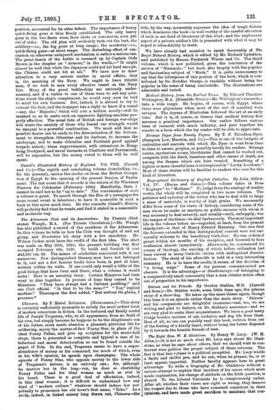Vol. IV. (Bums and Oates.)—This volume takes in from "
Kegneys " to " Metham." To judge from the analogy of similar works, the whole will be completed in two more volumes. The patience and industry of the writer who has to deal with so large a mass of materials, is worthy of high praise. We necessarily differ from some of his views of history, considering some of the men whom he ranks as martyrs, as public enemies with whom it was necessary to deal severely, and usually—such, unhappily, was the temper of the times—to deal barbarously. The most important life in the volume before us—regarded, at least, from the present standpoint—is that of Henry Edward Manning. One sees that the favours extended to this distinguished convert were not uni- versally welcome to the hereditary Catholics. He was ordained priest within six months of his reception, and licensed to hear confession almost immediately. Afterwards, he commenced his course of theology, the waiving of which before ordination had been viewed in many Catholic circles with undisguised dissatis- faction. The story of his after-life is told in a very interesting summary. He is to have the credit, it seems, of the doctrine of " a living wage." Some of the persons commemorated are obscure. It is the advantage—or disadvantage—of belonging to a comparatively small community that a man obtains notice often out of proportion to his importance.


































 Previous page
Previous page